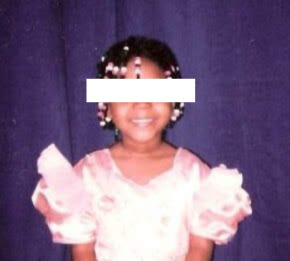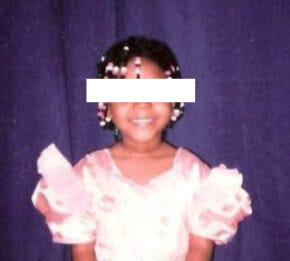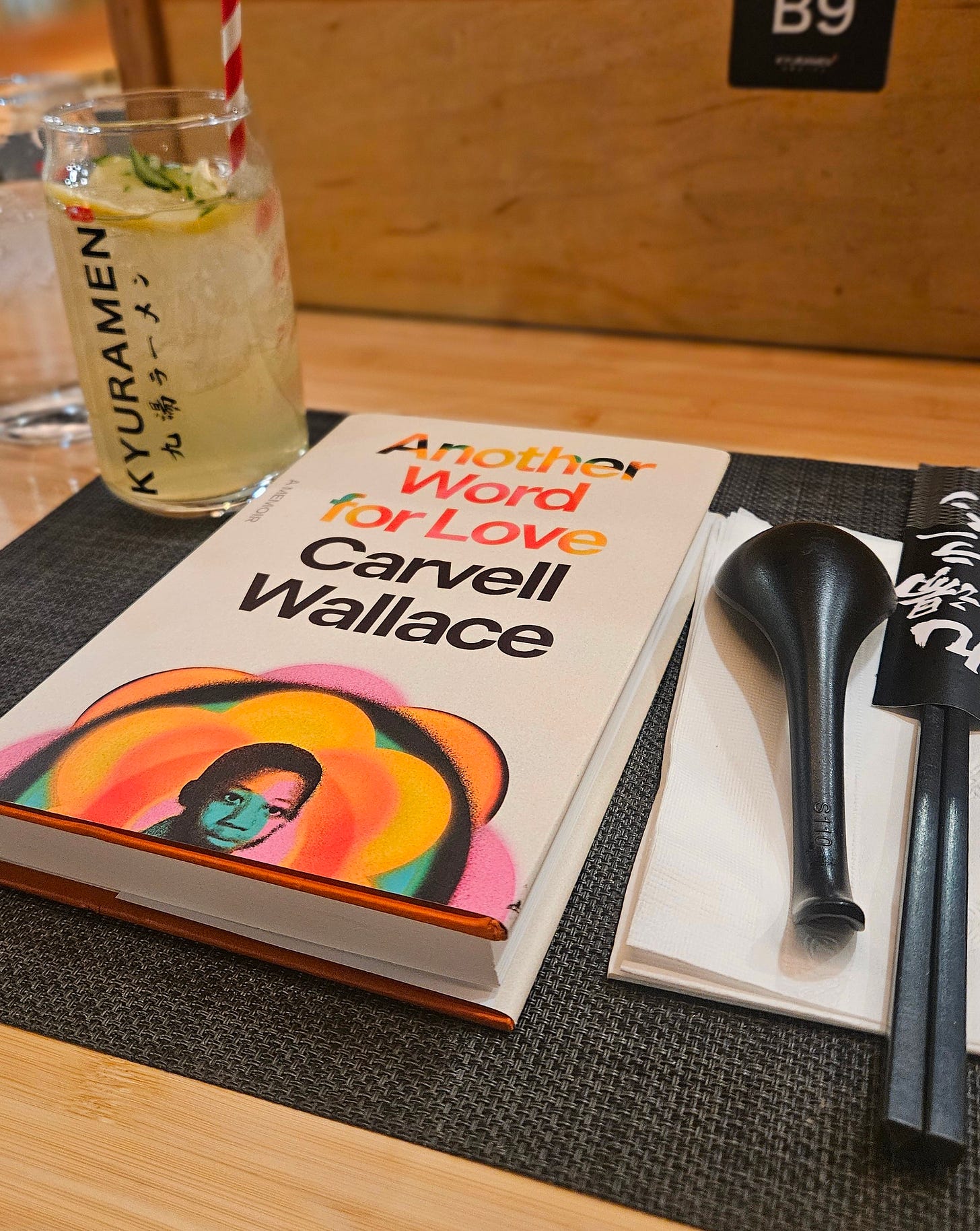What do we decide is permanent? (pt. 2)
A continuation of thoughts around our collective beliefs and attitudes toward permanence, and why it matters.
If you haven’t read part one, you can find that here:
Pt. 2 is a couple of months late because I sold a business, moved to Illinois, and had a two-week holiday break with my traveling clown troupe (what I call me and my dog in my car going anywhere). It gave me some time to get a new back tattoo (thank you Emilie Robinson you rule so hard) and consider further why we assign permanence and anxiety to certain things and not others. Without further ado…
Being raised in a Christian church-cult meant practicing traditional motherhood for as long as I can remember, though I’m sure that’s true for many of us socialized as girls. We grew up being asked how many future children we wanted, completely bypassing any questions about whether we wanted children in the first place. I watched my church friends marry as early as 20 years old and go on to have children before their own brains were fully developed. It was expected, so it was normal and, therefore, it wasn’t questioned.
But even if I wasn’t in the practice of questioning it, that doesn’t mean these practices didn’t make me deeply uncomfortable. It’s not that there’s anything inherently wrong with being religious and genuinely wanting to be married with children. I know those people exist and I love how they love their kids…if they’re happy, I’m happy for them. But it seemed to me then that, outside of religious spaces, children were presented more as a choice than an expected part of becoming an adult. However, having spent a decade outside of that church, I can confidently say that one thing I don’t see in either secular or non-secular culture is the belief that children are permanent.
It’s actually unbelievably WILD that there isn’t a collective belief around the permanence of children, let alone a larger collective anxiety. I can get a bigger reaction from someone by saying I’m thinking of tattooing an astronaut riding a potato (I love potatoes and outer space so this isn’t impossible) than I would if I said I’d like to have a child. The questions people would ask about the tattoo (“Are you sure?” “Why?” “You know that’s going to be with you forever, right?”) would never be considered socially acceptable to ask a friend or loved one considering having a child, even though the tattoo would cost me tens of thousands of dollars less and wouldn’t require me to run myself physically and emotionally ragged for years after.
So what does it mean when we treat having children as less of a permanent decision than getting a tattoo of a skeleton eating a slice of pizza on a skateboard?
Society simply doesn’t bring up permanence when it comes to children. It’s not uncommon to hear someone quote the completely arbitrary time limit of 18 years when discussing the time associated with having a kid. But that’s rarely how it works. Having a child should mean being able and willing to care for a person until they no longer need support, rather than when you no longer wish to support them. Some children require support for their entire lives. That’s a whole other anti-capitalist, anti-individualism post though (and yes, the whole “get out of my house at 18” thing IS a product of capitalism and individualism AND pro-military AND ableist, if you wanna get serious about it!!).
I see this selective application of permanence as reflective, not of the mundane nature of reproduction, but of the collective attitude toward children as not being full, autonomous humans worthy of respect. In our current attitude, a child is not an entire world with meaning separate from their parents, but an experience for parents to have. An experience, by definition, isn’t permanent. It’s an event or collection of moments we can observe or partake in, that may or may not change us. This attitude naturally centers the parent and their desires, rather than the human in front of them. (This is deeply connected to attitudes around adoption as well, and you should check out Angela Tucker’s work for more on that)
We’ve all heard people express, “I’ve always wanted to be a mom/dad/parent,” or ”I’m worried I’ll regret not having a kid,” or “Who will take care of you if you don’t have children?” It’s in these common refrains that folks betray a view of children as experiences that happen to us, rather than autonomous beings who will affect us, of course, but don’t exist for the sole purpose of affecting us. Does that make sense? Like, for some people their children exist to provide them with the title or prestige of parent. Their child becomes a reflection of their ability to live up to that title, tenuously balancing the health of the parent-child relationship on the parent’s fear, shame, or pride.
I think this attitude of children-as-experience is why a reddit like r/regretfulparents exists with over 148,000 members and even more anonymous readers. Not to be obvious, but like, so many experiences can be…bad. Treating having a child as an experience that has to involve a healthy, able-bodied, neurotypical, obedient, smart child who likes you and loves you throughout their childhood in order for it to have been “worth it” is, sorry, deranged.
While I’m glad people are speaking honestly and openly about the trials of being a parent, so much of it stems from these attitudes around children as experiences. You can hope for a good experience with your child! That’s natural! But most people don’t know how to keep the hope for a good experience from turning into trying to shape their kid into someone that suits them better, that eases their anxieties about life and death, or makes their life have meaning. And then they have the nerve to be upset when this person doesn’t do or isn’t capable of doing, this for them. What an unfair weight to put on someone who has no say in the matter!
When we view children as already owing us something (a good or fulfilling experience) before they’re even born, we, at best, do a disservice to them as unique humans with individual needs and desires completely separate from our own and, at worst, actively devalue and dehumanize them.
One last thing: have y’all seen those videos of parents “pranking” their kids? And I don’t mean good pranks like the crinkle-cut apple fries that are genuinely funny and harmless. I mean shit where parents are doing borderline emotionally abusive things to scare their children to the point where their kids are screaming and crying in fear or anxiety while the parent laughs with a camera in their face (I’m not seeking these out, they come across my FYP on Tiktok). If you read the comments on these videos or (worse) the responses from the parents: the majority of them are defending these “pranks” by saying things like, “Children cry at everything,” or, “They’re so young they’re not gonna remember any of this.”
First of all, I’m an abolitionist but…jail. Secondly, CHILDREN. ARE. PEOPLE! They are not goldfish with memories that only last 3 seconds, they are actual human beings who will hold onto how you make them feel long after the visual memory fades! Not to mention there’s now video proof of not just their parents disrespecting them, but THOUSANDS of complete strangers dehumanizing their pain and fear for entertainment as well! It’s sick! We’ve devalued children to the point that they are no longer human to so many people, simply little things to prod and shape and punish when they insist on being who they are. It’s only possible because we all allow it to happen in small ways, each day.
When I started writing these essays about permanence, my first thought was that someone would read them and think, “Why is she even talking about this? She’s not a parent.” But the thing is…I’ve been a child. We all have. There are so many childhood experiences I’ve had that can be traced back to my parents’ unhealed beliefs of who I should be and what they wanted from their experience. I can hear the moments when a younger me wanted to say, “That’s not who I am. I don’t want to. You’re not listening. You’re not seeing me. I need you to care.”
I care about how we think and talk about children, not just to honor the one I was, but because it’s directly tied to how we think and talk about each other. Do we wish to protect the most vulnerable? Are we patient with each other? Do our corrections come from wanting to make sure they don’t get hurt or hurt others, or to make ourselves feel superior for knowing better? Can we meet someone where they are? Do we see people who know less than us or can’t do as much as us, as more disposable?
There’s a mantra among leftists that what helps the most marginalized, helps us all. I know that, until recently, Black women, queer/trans adults, and/or disabled adults were the first people that came to mind upon hearing that phrase. But lately, I’ve been thinking about that phrase with kids, an often invisible marginalized group, at the forefront.
How do my politics affect them? How does my language, behavior, and actions reflect the child I was, and the childhood I wish I’d had? Even if I decide never to have children of my own, they’ll always be part of my community, so how do I look out for them? Am I mindful of speaking about children as people, and not experiences?
The abolitionist future I work toward must account for children as permanent members of society and community. It must allow space to ask questions of what we view as permanent. We have to cease using the idea of permanent shame (i.e. regret) as a way to influence bodily autonomy and practice introducing the idea of permanence to things that will affect how we view the bodily autonomy of others.
Anyway. These are the things my partner has to listen to me ramble about after they’ve said they’re going to bed and I’m like, “Okay! By the way, have you ever thought about-”
Enduringly, perpetually, everlastingly,
Dionne
As always, you can leave a token of appreciation above if you resonate with this week’s essay!
Oh, my reads and reviews.
You made it to the end, so you get some mini-reviews as a treat! We can be friends on Fable and Storygraph if you wanna share current reads and watches.
Current book: I’m tearing through Another Word for Love by Carvell Wallace. It’s absolutely stunning. Like, why does it have me clutching my heart, aching with the visceral feeling of Being Human while I eat ramen?? That should be illegal! I love it!
Last TV Show: I finished Squid Game Season 2 with my partner and, while some parts had me clutching my face and groaning, I found most of the season predictable and, yet, somehow aimless. I know Gi-Hun is the world’s unluckiest man alive but dear god let him catch a break in Season 3 or just kill him y’know??
Last Movie: Nosferatu was a banger but that is an unpopular opinion among my friend group that also saw it (uncultured swine…if none of them yell at me for calling them that then I’ll know they don’t read these posts, HA). Personally, I appreciated and enjoyed way more about it than I disliked! The stylistic nods to the 1922 Nosferatu were so fun, and I felt like Miss Lily-Rose Depp was in her big-ass-victorian-forehead bag.








Ugh yes to all of this. Thankfully I am surrounded mostly by people who don't seem to let themselves be bothered by my decision not to have kids, but I still spend a lot of time thinking about parenthood and analyzing all of the whys and why-nots, both for my partner and I as well as for the collective. It's really hard to watch family dynamics when it's clear that the parents did not do the work of questioning their beliefs and reasons before making their choice (though I can understand that it's a relatively new concept to even consider not doing it). Thankful as always for your perspective!
Thank you for this piece! It so thoughtful and beautiful compiles so many elements related to collective perceptions and beliefs around children in a way I’ve never been able to find quite the right words for.
When I share that I’m not having children, I’m far too often met with the deeply unsettling response of, “well you have to at least try!” As though we are discussing ordering a new ice cream favor, a purchase that you can return, or accepting a new job or business venture. (Though there would actually be more discussion about the latter than having children as you pointed out, despite employment or your career path not being permanent.)
These days that response mostly comes from strangers or temporary acquaintances, so the simple yet powerful response of, “no, they are permanent independent people” will now be at the ready.